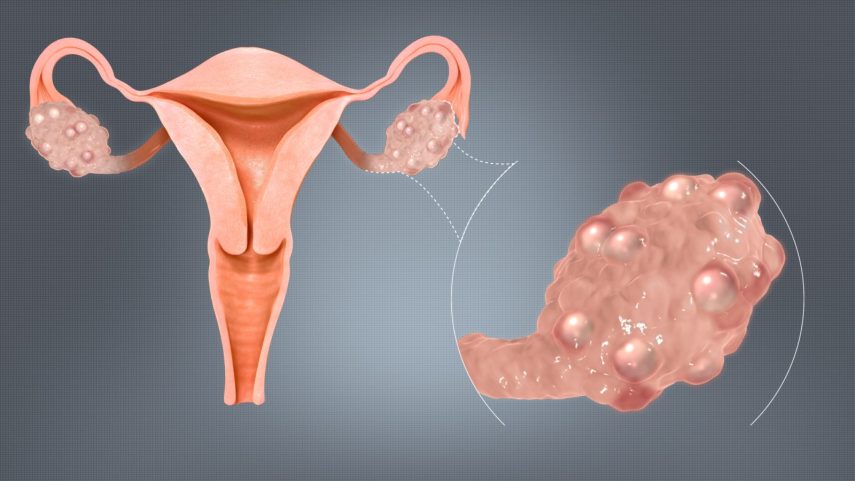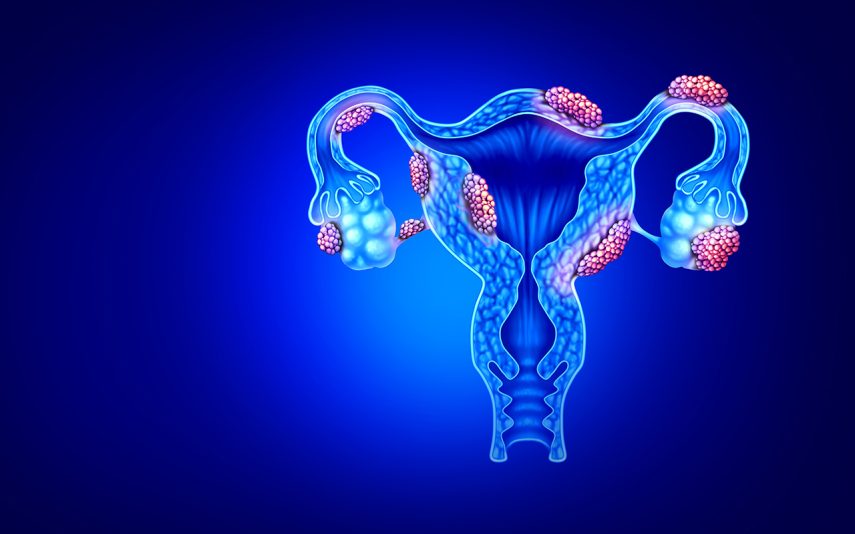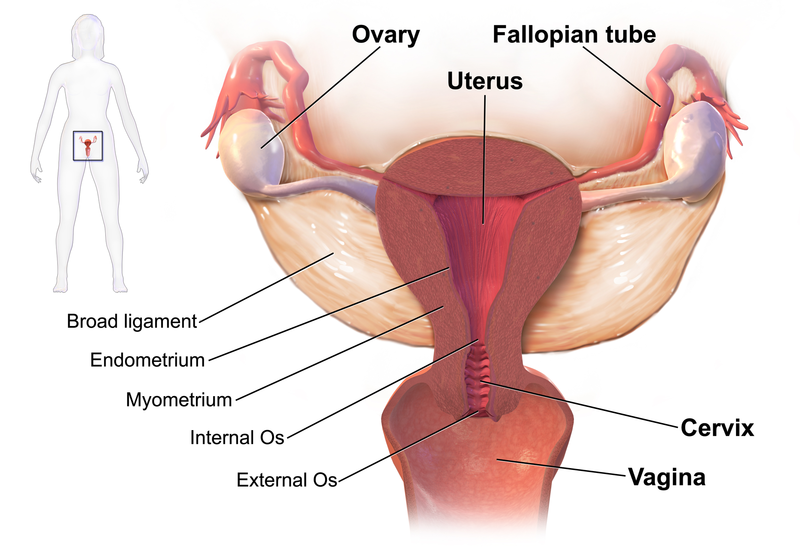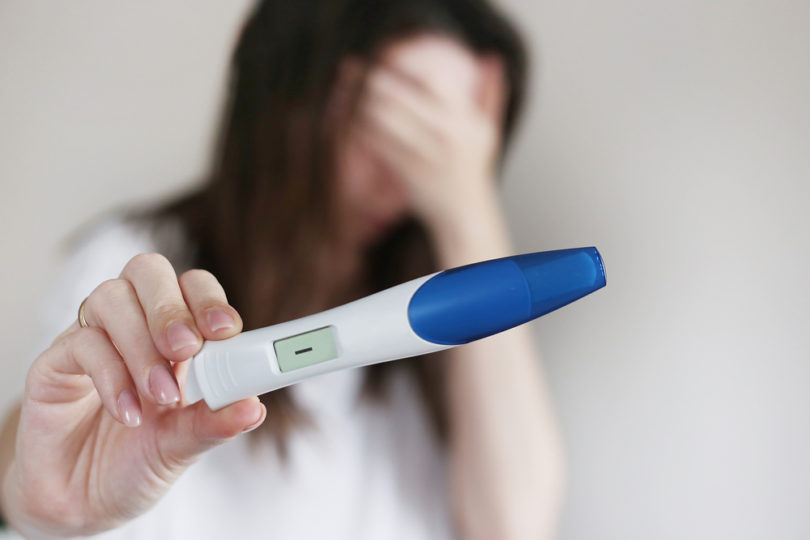It is a common misconception that infertility is only a woman’s problem. In fact, infertility can affect either partner. Many different conditions might affect fertility, both for men and women. Some of these conditions are relatively easy to treat, while others may require more intensive treatment.
Here, Fertility Plus discusses some of the most common conditions that can affect fertility.
Conditions That Might Affect Fertility
1- Polycystic Ovary Syndrome (PCOS)
What is PCOS?
Polycystic ovary syndrome (PCOS) is a hormonal condition that can affect women of childbearing age. Women with PCOS may have enlarged ovaries that contain small collections of fluid called follicles. PCOS can also cause changes in the level of other hormones in the body.

What Are The Symptoms of PCOS?
The most common symptom of PCOS is irregular periods, which can range from having fewer than eight periods per year to skipping periods or no period at all. Other symptoms include:
- Weight gain or difficulty losing weight.
- Excess hair growth on the face, chest, stomach, or back (hirsutism).
- Acne.
- Thinning scalp hair.
- Infertility.
What Causes PCOS?
The exact cause of PCOS is unknown, but it is thought to be related to a combination of genetic and environmental factors. It is believed that PCOS runs in families, so if you have a close relative with the condition (such as a mother or sister), you may be at increased risk. Environmental factors, such as obesity and insulin resistance, are also thought to play a role in the development of PCOS.
How is PCOS Diagnosed?
PCOS is typically diagnosed by a combination of your medical history, physical exam, and laboratory tests. Your doctor will likely ask about your menstrual cycles, weight changes, hair growth, and other symptoms. A physical exam will be performed to check for signs of excess hair growth or acne. Blood tests may also be ordered to check your hormone levels.
How is PCOS Treated?
There is no cure for PCOS, but the symptoms can be managed with medication, surgery, or lifestyle changes.
Medications: Hormonal birth control pills can help regulate hormone levels and reduce the risk of endometrial cancer. Other medications, such as metformin, can be used to treat insulin resistance.
Surgery: Laparoscopic ovarian drilling (LOD) is a surgical procedure that destroys some of the ovaries’ tissue in order to improve hormone levels and fertility. LOD is
2- Endometriosis

Endometriosis is a condition where the endometrium, which is the tissue that lines the inside of the uterus, begins to grow outside of the uterus. This can cause pain and inflammation in the pelvic area, as well as problems with fertility. Endometriosis is estimated to affect about 10% of women of reproductive age, and there is currently no cure for the condition. Treatment options include medication and surgery.
3- Male Factor Infertility
Male factor infertility refers to any condition that affects a man’s ability to conceive. This could include problems with sperm production or function, blockages in the reproductive tract, or other issues. Male factor infertility is often treated with medication, surgery, or assisted reproductive technologies (ART).
4- Tubal Factor Infertility

Tubal Factor Infertility is a condition that can affect a woman’s fertility. It occurs when the fallopian tubes are blocked or damaged, preventing the egg from being fertilised by the sperm. There are several factors that can lead to tubal factor infertility, including:
- Chlamydia infection.
- Previous surgery on the fallopian tubes.
- Scarring from endometriosis.
- Pregnancy complications, such as preterm labour or multiple births.
If you are experiencing difficulty getting pregnant, it is important to consult with your doctor to determine whether tubal factor infertility is the cause. There are treatments available that can help improve your chances of conception, such as surgery or in vitro fertilisation.
5- Uterine Factor Infertility
Uterine Factor Infertility (UFI) is a condition that affects fertility, caused by problems with the uterus. UFI can be due to abnormalities in the shape or structure of the uterus, such as the uterine septum, uterine fibroids, or polyps. These abnormalities can interfere with the implantation of a fertilised egg, or with the development of a healthy pregnancy. UFI can also be due to inflammation or infection of the uterus, which can damage the delicate tissues that support fertility.
6- Ovulation Disorders

Ovulation disorders are any conditions that prevent the ovaries from releasing eggs. This could be due to hormonal imbalances, medications, or other factors. Ovulation disorders are often treated with medication or lifestyle changes.
There are a number of ovulation disorders that can affect fertility. Polycystic ovarian syndrome (PCOS) is one of the most common and is caused by an imbalance of hormones. This can lead to irregular or even absent periods, as well as difficulty getting pregnant. Another common ovulation disorder is called luteal phase defect, which is caused by a deficiency in progesterone. This can lead to early miscarriage or infertility.
7- Premature Ovarian Failure
Premature ovarian failure is a condition in which the ovaries stop functioning before a woman reaches menopause. This can cause irregular periods and infertility. Premature ovarian failure is often treated with hormone replacement therapy.
8- Immune Disorders

Immune disorders can affect fertility by causing the body to attack and kill sperm or eggs. This could be due to autoimmune diseases like lupus or cancer treatments like chemotherapy. Immune disorders are often treated with medication or lifestyle changes.
9- Cervical Factor Infertility
Cervical factor infertility refers to any condition that affects the cervix. This could include cervical stenosis, which is a narrowing of the cervix, or other damage to the cervix. Cervical factor infertility is often treated with surgery.
10- Age-Related Infertility

Age-related infertility is a decrease in fertility that occurs as a woman gets older. This is due to the declining number of eggs in the ovaries and changes in egg quality. Age-related infertility is often treated with assisted reproductive technologies (ART).
It’s important to be aware of the conditions that might affect fertility because many couples don’t realise they have a problem until they’ve been trying to conceive for some time. If you think you or your partner may have a fertility issue, it’s best to seek medical help sooner rather than later. Don’t wait until you’re ready to start a family before getting checked out; by then it may be too late.
Related Posts:
- One Punch Man Season 3 Might Have Many Surprises For You!
- The Best Conditions for Germinating Herb Seeds
- How Does Window Treatment Affect Energy Efficiency
- How Does Hosting Affect Online Video Gamers in 2024?
- How Worrying Can Affect Your Body and Mind - 2024 Guide
- How Does Your Employment Status Affect Your Loan…







